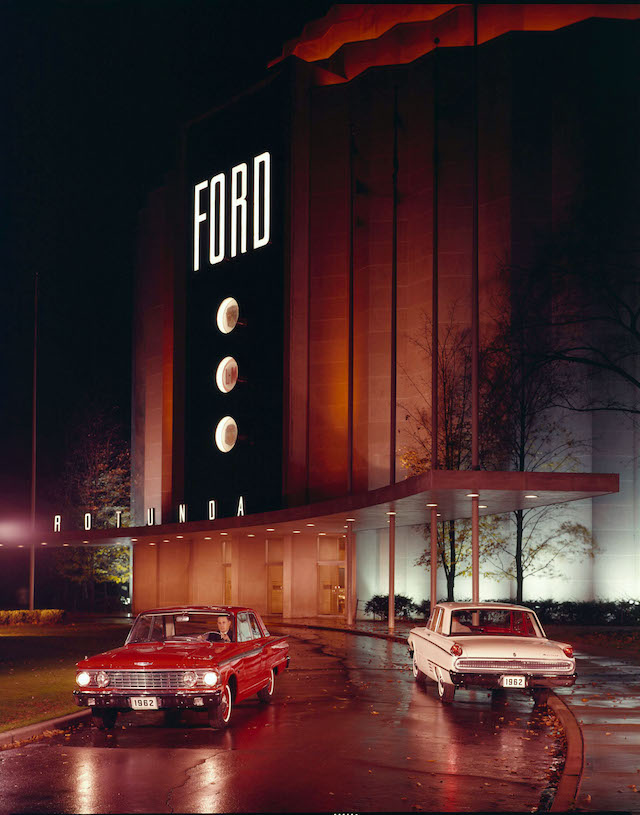Compound interest is merely one example of an exponential function. Human beings have great trouble thinking in exponential terms. It is far easier to think in linear terms and, because this is our natural instinct, most people vastly underestimate the power of investing over a long lifetime. Compounding takes a long period of time to work its magic and we live in a society that prizes instant gratification above all else.
Part of getting older is gaining insight into the reality that living a good life has far more to do with factors such as health and family that simply cannot be purchased with money. However, money is definitely a prerequisite for living a secure life. Since poverty almost always guarantees misery and since anyone in the middle class or higher can easily attain financial independence over a lifetime, there is no excuse to persist in irresponsible spending. Your future self will thank your present self for being prudent and sensible.
Author: VAULT45
“An optimist isn’t necessarily a blithe, slightly sappy whistler in the dark of our time.”
Howard Zinn, 2004:
In this awful world where the efforts of caring people often pale in comparison to what is done by those who have power, how do I manage to stay involved and seemingly happy?
There is a tendency to think that what we see in the present moment will continue. We forget how often we have been astonished by the sudden crumbling of institutions, by extraordinary changes in people’s thoughts, by unexpected eruptions of rebellion against tyrannies, by the quick collapse of systems of power that seemed invincible.
An optimist isn’t necessarily a blithe, slightly sappy whistler in the dark of our time. To be hopeful in bad times is not just foolishly romantic. It is based on the fact that human history is a history not only of cruelty but also of compassion, sacrifice, courage, kindness. What we choose to emphasize in this complex history will determine our lives. If we see only the worst, it destroys our capacity to do something.
If we remember those times and places–and there are so many-where people have behaved magnificently, this gives us the energy to act, and at least the possibility of sending this spinning top of a world in a different direction. And if we do act, in however small a way, we don’t have to wait for some grand utopian future. The future is an infinite succession of presents, and to live now as we think human beings should live, in defiance of all that is bad around us, is itself a marvelous victory.
“People base their perceptions of performance, in part, on their preconceived notions about their skills.”
Successful negotiation of everyday life would seem to require people to possess insight about deficiencies in their intellectual and social skills. However, people tend to be blissfully unaware of their incompetence. This lack of awareness arises because poor performers are doubly cursed: Their lack of skill deprives them not only of the ability to produce correct responses, but also of the expertise necessary to surmise that they are not producing them. People base their perceptions of performance, in part, on their preconceived notions about their skills. Because these notions often do not correlate with objective performance, they can lead people to make judgments about their performance that have little to do with actual accomplishment.
Ford Rotunda



The Ford Rotunda was a tourist attraction that was originally located on the South Side of Chicago, Illinois, and later was relocated to Dearborn, Michigan. At one point in the mid-20th century, it was the fifth most popular tourist destination in the United States. The Rotunda was built for the 1933 World’s Fair—”A Century of Progress International Exposition”—in Chicago. After the World’s Fair, the Rotunda was dismantled and rebuilt in Dearborn, serving as the visitor center for what was then the equivalent of Ford Motor Company’s world headquarters. The Rotunda was destroyed on Friday, November 9, 1962, by a fire.
“The kindest person in the room is often the smartest.”
J.B. Pritzker, speaking at Northwestern University’s 165th Commencement ceremony on June 12, 2023:
The best way to spot an idiot? Look for the person who is cruel. Let me explain.
When we see someone who doesn’t look like us, or sound like us, or act like us, or love like us, or live like us — the first thought that crosses almost everyone’s brain is rooted in either fear or judgment or both. That’s evolution. We survived as a species by being suspicious of things we aren’t familiar with. In order to be kind, we have to shut down that animal instinct and force our brain to travel a different pathway. Empathy and compassion are evolved states of being. They require the mental capacity to step past our most primal urges.
I’m here to tell you that when someone’s path through this world is marked with acts of cruelty, they have failed the first test of an advanced society. They never forced their animal brain to evolve past its first instinct. They never forged new mental pathways to overcome their own instinctual fears. And so, their thinking and problem-solving will lack the imagination and creativity that the kindest people have in spades.
Over my many years in politics and business, I have found one thing to be universally true: the kindest person in the room is often the smartest.
“It would be naïve to depend on the Supreme Court to defend the rights of poor people, women, people of color, dissenters of all kinds.”
Howard Zinn, 2005:
It would be naïve to depend on the Supreme Court to defend the rights of poor people, women, people of color, dissenters of all kinds. Those rights only come alive when citizens organize, protest, demonstrate, strike, boycott, rebel, and violate the law in order to uphold justice.
The Constitution gave no rights to working people: no right to work less than 12 hours a day, no right to a living wage, no right to safe working conditions. Workers had to organize, go on strike, defy the law, the courts, the police, create a great movement which won the eight-hour day, and caused such commotion that Congress was forced to pass a minimum wage law, and Social Security, and unemployment insurance.
The right of a woman to an abortion did not depend on the Supreme Court decision in Roe v. Wade. It was won before that decision, all over the country, by grassroots agitation that forced states to recognize the right. If the American people, who by a great majority favor that right, insist on it, act on it, no Supreme Court decision can take it away.
The rights of working people, of women, of Black people have not depended on decisions of the courts. Like the other branches of the political system, the courts have recognized these rights only after citizens have engaged in direct action powerful enough to win these rights for themselves.
No Supreme Court, liberal or conservative, will stop the war in Iraq, or redistribute the wealth of this country, or establish free medical care for every human being. Such fundamental change will depend, the experience of the past suggests, on the actions of an aroused citizenry, demanding that the promise of the Declaration of Independence — an equal right to life, liberty, and the pursuit of happiness — be fulfilled.
Notes: The Little Book of Common Sense Investing
Notes from The Little Book of Common Sense Investing (2007) by John C. Bogle:
* Successful investing is about owning businesses and reaping the huge rewards provided by the dividends and earnings growth of our nation’s—and, for that matter, the world’s—corporations. The higher the level of their investment activity, the greater the cost of financial intermediation and taxes, the less the net return that shareholders—as a group, the owners of our businesses—receive. The lower the costs that investors as a group incur, the higher the rewards that they reap. So to enjoy the winning returns generated by businesses over the long term, the intelligent investor will reduce to the bare-bones minimum the costs of financial intermediation.
* Our system of financial intermediation has created enormous fortunes for those who manage other people’s money. Their self-interest will not soon change. But as an investor, you must look after your self-interest. Only by facing the obvious realities of investing can an intelligent investor succeed.
* In the investment field, time doesn’t heal all wounds. It makes them worse. Where returns are concerned, time is your friend. But where costs are concerned, time is your enemy.
* With each passing year, the reality is increasingly clear: relative returns of mutual funds are random. Yes, there are rare cases where skill seems to be involved, but it would require decades to determine how much of a fund’s success can be attributed to luck, and how much attributed to skill.
* While I can’t assure you that traditional index investing is the best strategy ever devised, I can assure you that the number of strategies that are worse is infinite.
* I urge you not to be tempted by the siren song of paradigms that promise the accumulation of wealth that are far beyond the rewards of the traditional index fund. Don’t forget the prophetic warning of Carl von Clausewitz, military theorist and Prussian general of the early nineteenth century: “The greatest enemy of a good plan is the dream of a perfect plan.”
* No matter what happens, stick to your program. Think long term. Patience and consistency are the most valuable assets for the intelligent investor.
* Whatever asset allocation strategy you decide is best for you, you absolutely must take into account the role of Social Security—a major source of income for most retirees—as you age. When determining their asset allocations, most investors need to take Social Security into consideration as a bond-like asset.
* The way to wealth, I repeat one final time, is not only to capitalize on the magic of long-term compounding of returns, but to avoid the tyranny of long-term compounding of costs. Avoid the high-cost, high-turnover, opportunistic marketing modalities that characterize today’s financial services system. While the interests of Wall Street’s businesses are well served by the aphorism “Don’t just stand there—do something!,” the interests of Main Street’s investors are well served by an approach that is its diametrical opposite: “Don’t do something—just stand there!”
“Confidence in a forecast rises with the amount of information that goes into it. But the accuracy of the forecast stays the same.”
Dean Williams:
One of the most consuming uses of our time, in fact, has been accumulating information to help us make forecasts of all those things we think we have to predict. Where’s the evidenced that it works? I’ve been looking for it. Really. Here are my conclusions: Confidence in a forecast rises with the amount of information that goes into it. But the accuracy of the forecast stays the same. And when it comes to forecasting—as opposed to doing something—a lot of expertise is no better than a little expertise. And may even be worse. The consolation prize is pretty consoling, actually. It’s that you can be a successful investor without being a perpetual forecaster.
We have security analysts. We get research reports from brokers. We get forecasts about the economy, interest rates, the stock market. We process that information and act on the basis of it. For all of that to make any sense, we all have to believe we can generate information which is unknown to the market as a whole.
There is an approach which is simpler and probably stands a better chance of working. Spend your time measuring value instead of generating information. Don’t forecast. Buy what is cheap today. Let other people deal with the odds against predicting the future.
“Trying Too Hard”, Financial Analysts Federation Seminar 1981 [PDF]
“Time is the friend of someone properly positioned and the enemy of someone poorly positioned.”
You don’t need to be smarter than others to outperform them if you can out-position them.
Anyone looks like a genius when they’re in a good position, and even the smartest person looks like an idiot when they’re in a bad one. When circumstances change, the person with low leverage and cash in the bank has many ways to play their hand and come out on top. On the other hand, the person with high leverage and no cash buffer has few.
Time is the friend of someone properly positioned and the enemy of someone poorly positioned.
“Nothing has served me better in my long life than continuous learning.”
Charlie Munger, speaking at USC Law School Commencement in 2007:
Wisdom acquisition is a moral duty. It’s not something you do just to advance in life. As a corollary to that proposition which is very important, it means that you are hooked for lifetime learning. And without lifetime learning, you people are not going to do very well. You are not going to get very far in life based on what you already know. You’re going to advance in life by what you learn after you leave here.
I constantly see people rise in life who are not the smartest, sometimes not even the most diligent, but they are learning machines. They go to bed every night a little wiser than they were when they got up and boy does that help, particularly when you have a long run ahead of you.
Nothing has served me better in my long life than continuous learning.